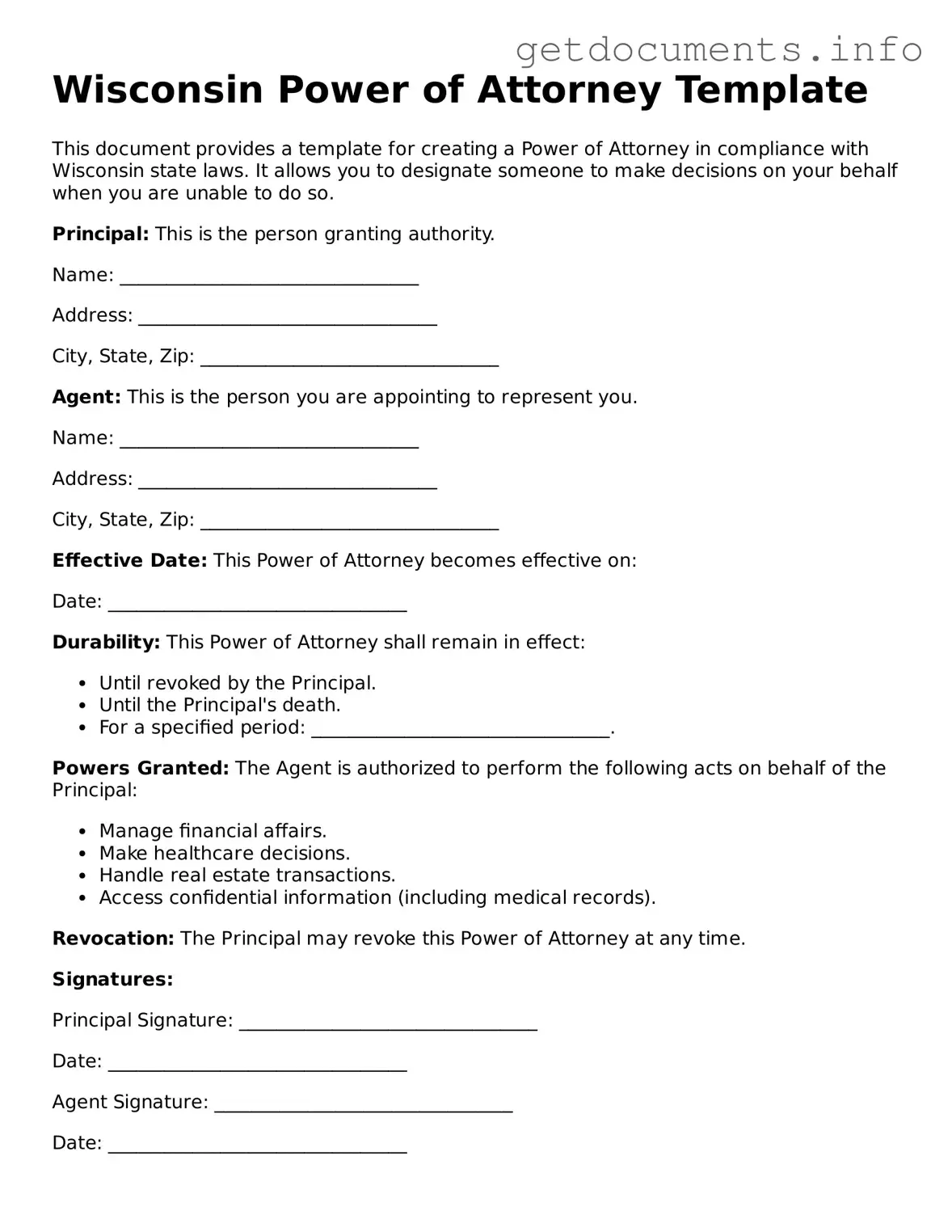Free Power of Attorney Template for Wisconsin
The Wisconsin Power of Attorney form is a legal document that allows you to designate someone to make decisions on your behalf, especially in financial or health-related matters. This form ensures that your preferences are honored when you cannot communicate them yourself. Take control of your future by filling out the form below.
Access Power of Attorney Editor

Free Power of Attorney Template for Wisconsin
Access Power of Attorney Editor
Got places to be? Complete the form fast
Fill out Power of Attorney online and avoid printing or scanning.
Access Power of Attorney Editor
or
⇩ PDF File
